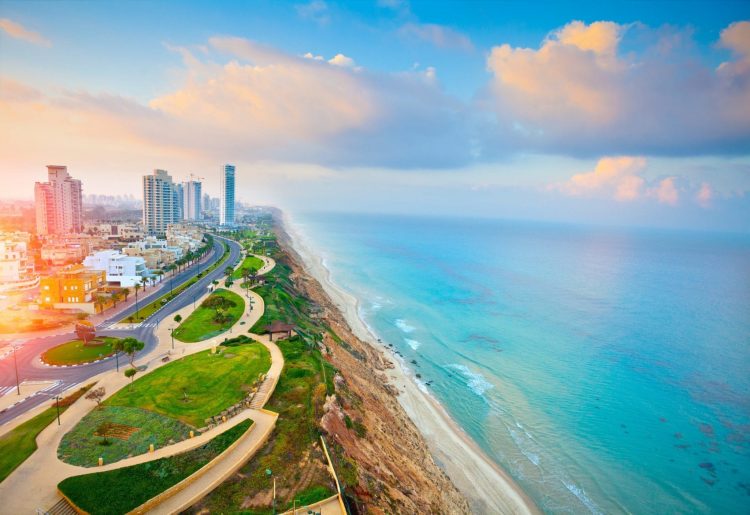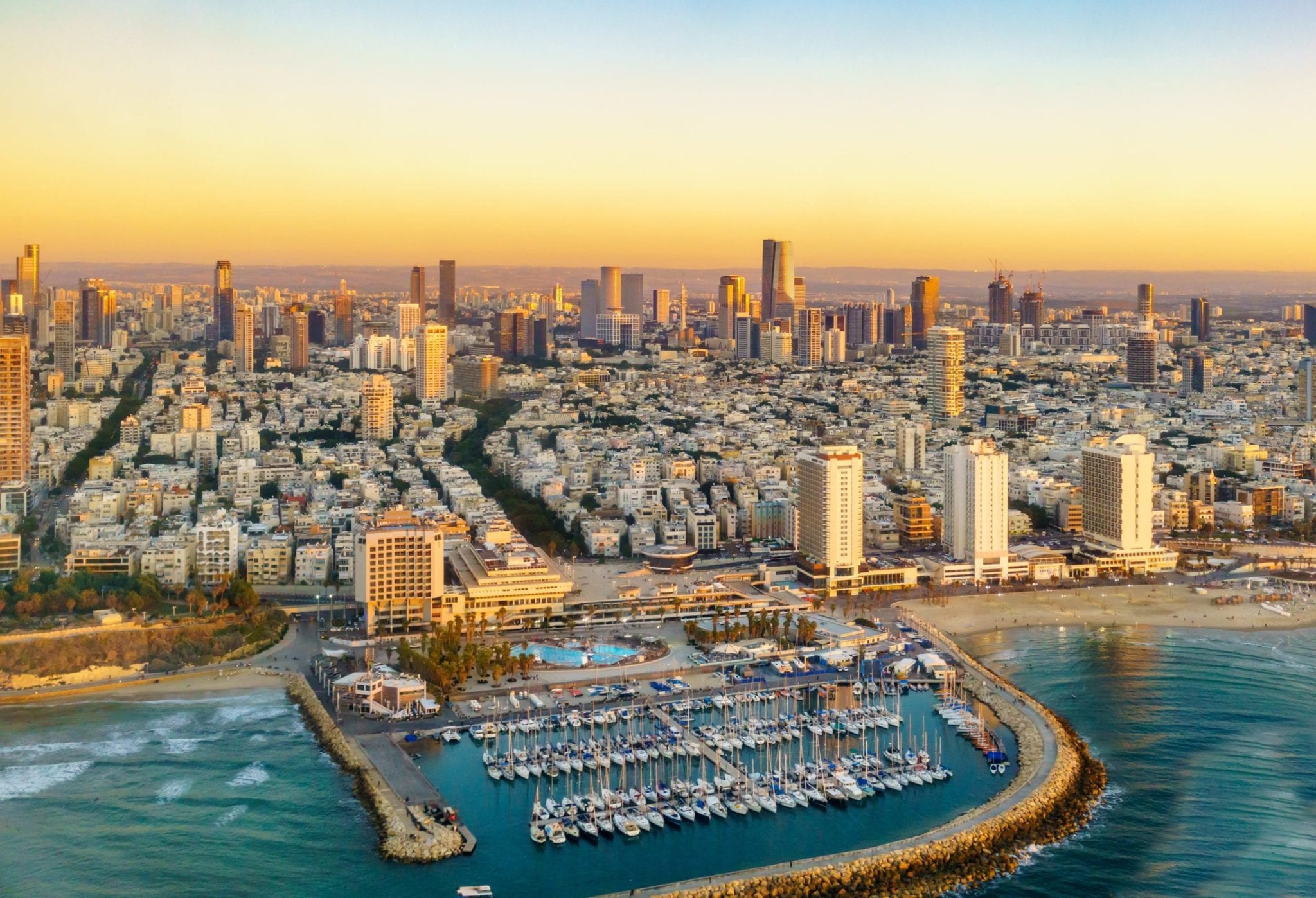Israel is one of the world’s hottest tourist destinations. Each year, millions of travelers flock to the holy land from all over the world. Some come to enjoy the country’s breathtaking natural scenery, others marvel at the incredible and well-preserved historical sites, while some visit Israel to immerse themselves in the local culture and partake in the annual Jewish festivals and rituals.
As such, there is no “best time to visit Israel” as it depends on the purpose of your visit. That said, there are times during the year when it is less crowded and airfares are cheaper. Below, we’ve outlined the best times to visit Israel based on the most common reasons why tourists travel to the Holy Land
The 4 Seasons in Israel:
Israel has a Mediterranean climate with warm, dry summers and cool, rainy winters. The summer warmth extends from May through to September. During these months the weather across the country is hot, there is rarely rain, and the air in some parts is particularly humid.
Autumn begins in October and lasts until early December. During this period, there is a noticeable drop in temperature, but it can still reach 77°F (25 °C) during the day.
Winter lasts from mid-December until late February. During these months, the temperature drops to 41°F (5 °C) → 59°F (15 °C) and it can be quite cold during nighttime. This is also the rainy season in Israel.
Spring lasts from March until May. The weather is particularly favorable during this season with warm, yet mild temperatures of 68 – 77°F (20 – 25°C) and little to no rain.
Best time to visit Israel for hiking
Spring is the best time to visit Israel for hiking, day trips, and general sightseeing. The daytime weather is perfect for outdoor adventuring, especially in the scenic North.
Best time to visit the Dead Sea
Spring It’s also a pleasant time to visit the Negev. During summer, the Judean desert and Dead Sea areas are uncomfortably hot, but during spring the weather is ideal.
The Dead Sea is also a popular winter destination, as the sea offers year-round warmth. The average peak temperature for the Dead Sea region in December is 71°F (21°C), and during Spring, the Dead Sea experiences highs of 85°F (29°C).
While visiting the Dead Sea during Winter is certainly a great choice for winter vacation. The weather is relatively warm for this time of year, but be advised, on extreme rainy days the surrounding area is prone to flash flooding. The relatively quieter early-spring period is perhaps the best time to visit the Dead Sea.
Best time to visit Israeli historic sites
We also consider Spring the best time to visit historical sites in Israel. As well as the great weather, it’s also the off-season and relatively quieter. The Western Wall attracts millions of annual tourists, but aside from the summer months and religious holidays, it’s generally not so busy.
We’d recommend coming here between February and April when the weather is mild and there are fewer crowds. Other popular sites include the Masada National Park. Located near the Dead Sea, Masada is one of the most visited places in Israel. The best time to visit here is year-round, aside from the summer months when it’s too hot to properly enjoy this incredible historical fortress.
The historic sites around Jerusalem, such as the Herodian National Park, and Rachel’s tomb, are a perfect place to visit at any time of the year. But, Spring, in particular, is the ideal season.
Best time to visit Israel for Jewish holidays
Autumn is the best time to visit Israel for Jewish religious festivals and holidays. The holiday season takes place during September and October. During this time, various festivals and religious holidays are celebrated with street parties, parades, and more.
Be advised, air travel and hospitality may be more expensive during these periods. Also, many holy sites will be extremely busy. If you enjoy large crowds and public celebrations then this is certainly the time to visit Israel. However, if you’d prefer to visit Israel’s rich history during a quieter period.
Best time to visit Israel for Christian holidays
During December, thousands of Christians make a pilgrimage to Israel to celebrate Christmas in the ancient Churches of Jerusalem and to visit Nazareth – the birthplace of Jesus.
Best time to visit Tel Aviv
The best time to visit Tel Aviv is undoubtedly summertime. During this season, the beaches are full of locals and tourists soaking up the sun, enjoying the cool Mediterranean Sea, and partaking in the local beach culture.
The warm summer weather is ideal for sunbathing and swimming conditions. The hotels tend to be full during this time and prices increase. Be sure to book and make hotel reservations at least two months in advance.
Least expensive time to visit Israel
Budget travelers may want to book a winter trip. The best time to visit Tel Aviv for inexpensive airfare and hotels is in January, as there are relatively fewer tourists in the middle of winter.
May to July is the peak tourist season and you should expect higher prices and fewer accommodation options during this time. Also, try to avoid booking a trip for the last two weeks of August. Many schools begin at the start of September, making the end of August a popular time for family vacations.
No matter when you decide to go, book flights and hotels at least one month in advance to find below-average prices for airline tickets.
Frequently Asked Questions about the Best Time to Visit Israel
- Q: What power outlets and voltage does Israel use? Do I need an adapter?
A: Israel uses Type H and Type C outlets with a voltage of 230V and a frequency of 50Hz. Depending on your home country, you may need a power adapter and/or a voltage converter to use your electronic devices. - Q: Which cultural or religious events should I consider for my Israel trip?
A: Israel is home to many religious and cultural events throughout the year, such as Passover, Yom Kippur, and Purim. Depending on your interests, you may want to schedule your visit around these events or avoid them due to potential closures or large crowds. - Q: Are special health precautions or vaccinations required for Israel?
A: Israel does not require any specific vaccinations for travelers. However, it’s always a good idea to consult with your doctor or a travel clinic to ensure you’re up-to-date on routine vaccinations and any other recommended precautions.

